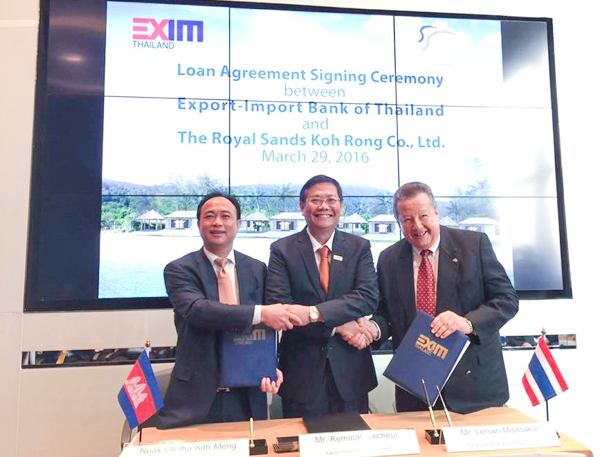Japan has agreed to use the Shinkansen bullet train as the model for a high-speed rail network in Thailand, according to Transport Minister Arkom Termpittayapaisith.
Mr Arkom spoke after meeting his Japanese counterpart, Minister of Land, Infrastructure, Transport and Tourism Keiichi Ishii, at the Ministry of Transport on Ratchadamnoen Nok Avenue on Friday.
The pair discussed construction plans for the high-speed train that will link Bangkok and Chiang Mai, he said.
Mr Ishii has said that Japan’s bullet train has clear advantages in terms of safety and reliability.
The system can be offered at low costs not only initially but also for maintenance over its total life cycle.
Japan has been interested in the Bangkok-Chiang Mai project, along with one that connect the lower East-West corridor, covering Kanchanaburi, Bangkok, Sa Kaeo’s Aranyaprathet district and Laem Chabang in Chon Buri.
There will be two phases to construction: the first will see the railway connect Bangkok to Phitsanulok, and phase two from Phitsanulok to Chiang Mai, he said.
Mr Arkom said Thailand asked Japan to intensify its effort in working on a feasibility study for the project, to ensure it runs according to schedule.
The study will be concluded by November, he said.
Mr Arkom said the project should make a good return on investment, but did not elaborate on what would lead to a successful result.
He said Thailand has also asked Japan to study ways to improve Bang Sue Central Station, a commercial transportation hub in Bangkok. Japan has agreed to the request, he added.
Both sides said significant progress had been made, Mr Arkom said, citing representatives from the two countries that have had talks on technical issues.
As for the lower East-West corridor railway covering Kanchanaburi, Laem Chabang and Aranyaprathet, he said Thailand has asked Japan to study the route and provide feedback to allow Thailand to identify opportunities for promoting business along the route.
Thailand had also asked Japan to conduct a maintenance and technology training programme for its technicians, he said.
Yuji Fukasawa, executive vice-president of East Japan Railway Co, told a symposium in June that a Shinkansen system could start commercial operations within seven years.
Source: http://www.bangkokpost.com/news/transport/1054761/thailand-plumps-for-japanese-bullet-train-model


